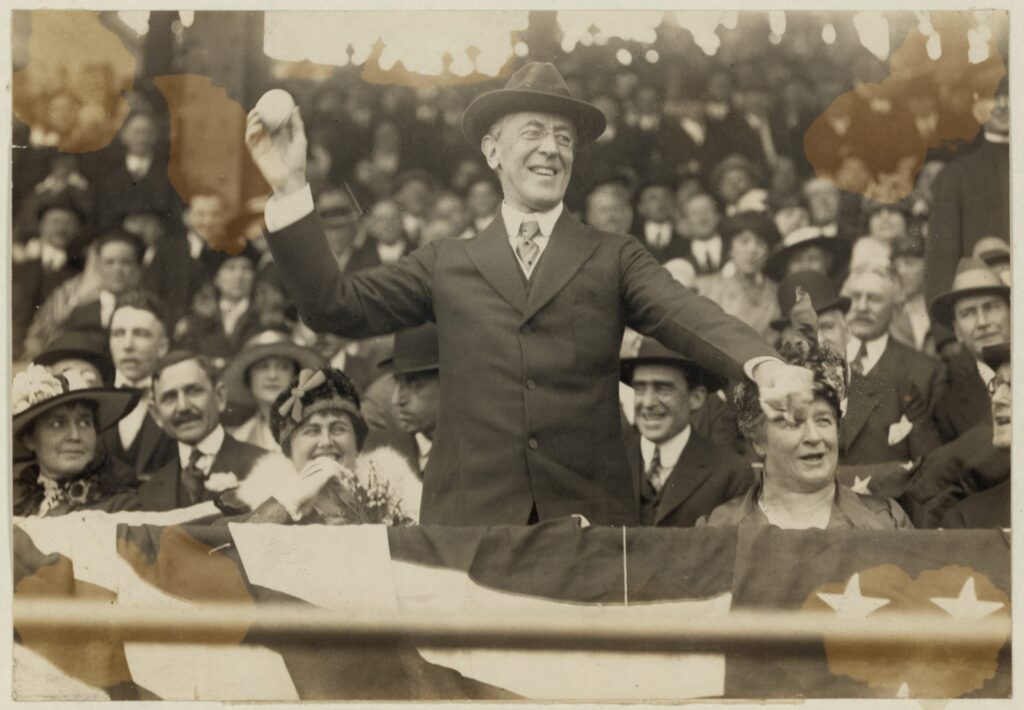Woodrow Wilson won the presidential election in the United States three weeks before Albania declared independence in November 1912. But it would be several years before his rejection of plans for the partition of Albania provided the former American President with a place of honor in Albanian history. President Wilson’s vision of the world, the role of Albanian-Americans and historical circumstances contributed to the decision that would reaffirm Albania’s independence.
When you look at the world after World War I in 1919-1920 and Woodrow Wilson’s decision not to allow the dismemberment of Albania, you can’t escape the thought that if the course of events had gone just a little differently, the map of Albania would not be the one we know today.
In December 1918 President Wilson left for Europe where he spent most of the next six months involved in the negotiations of the Paris Peace Conference. The negotiations for the fate of Albania were related to the goals for the control of the Adriatic. The Albanian territories were once divided by the great powers in 1913. But the intentions of the neighbors did not stop there.
European powers wanted to continue traditional diplomacy. President Wilson rejected the idea of secret alliances in his Paris discussions. One of these secret agreements was the so-called Tittoni-Venizelos of 1919, when Italy and Greece agreed to take parts of Albania.
“Some of the great powers had secretly agreed without the knowledge or commitment of the United States to divide Albania, and when President Wilson found out about such a thing he said he would not support it”, says Robert Enholm, Executive Director of the House of Woodrow Wilson in Washington, where the former president spent the years after leaving office”.
For the historian Nikolla Pano, the danger that threatened Albania was the intention of the neighbors but also the weakness of the country’s government. Professor Pano says that at the beginning of the negotiations, President Wilson was inclined to make some concessions.
“But what started to make Wilson support Albania more and more, was the fact that Greece and especially Italy became more and more demanding”.
On December 9, 1919, France and England – without the presence of the United States – reached an agreement that gave Italy the mandate to secede Vlora and for Greece to take the territory around Gjirokastra, but not Korca. Professor Pano says that President Wilson was surprised that the Italians and Greeks were unhappy and wanted more territory from Albania, and when the question of the northern borders came up, he was completely disappointed, realizing that what was being proposed would lead to the disappearance of Albania. .
“On March 6, President Wilson forcefully rejected these demands and from his point of view the issue of Albania was not open for discussion and the fate of Albania would be determined in a series of meetings after the Peace Conference”.
“As the Americans played an important role in the final stages of the war, Woodrow Wilson’s words carried great weight.”
The United States did not know much about Albania before a fact-finding mission in 1914 by the American minister to Greece, George Frederick Williams. But historians agree that there was another essential factor in the American attitude.
“The other factor that should be kept in mind at the beginning of the Albanian defense scenario is the role of the Albanian diaspora, especially that in the United States and its leaders like Faik Konica and especially Fan Noli. Faik Konica was abroad during most of war, but Fan Noli was in the United States at this time, as well as other well-known people like Kostë Çekrezi and Kristo Dako”.
Mr. Enholm of the Woodrow Wilson House also thinks so.
“President Wilson did not accept the division of Albania thanks to his principle of self-determination, and more specifically from contacts with Albanian-Americans.”
Mr. Pano says that the Albanians undertook a massive propaganda campaign to preserve the independence of Albania and its territorial integrity.
Two days after the position expressed by America in 1920, Dielli newspaper evaluated the role of the United States and Košte Çekrezi made it clear that the United States had saved Albania, in an interview in the New York Times newspaper. Later that year, Albania became a member of the League of Nations.










[…] love Americans. The American government has supported Albania in significant ways including at the Paris Peace Conference of January 1919, after WWI, where President Wilson stood up to the rest of Europe and insisted that […]